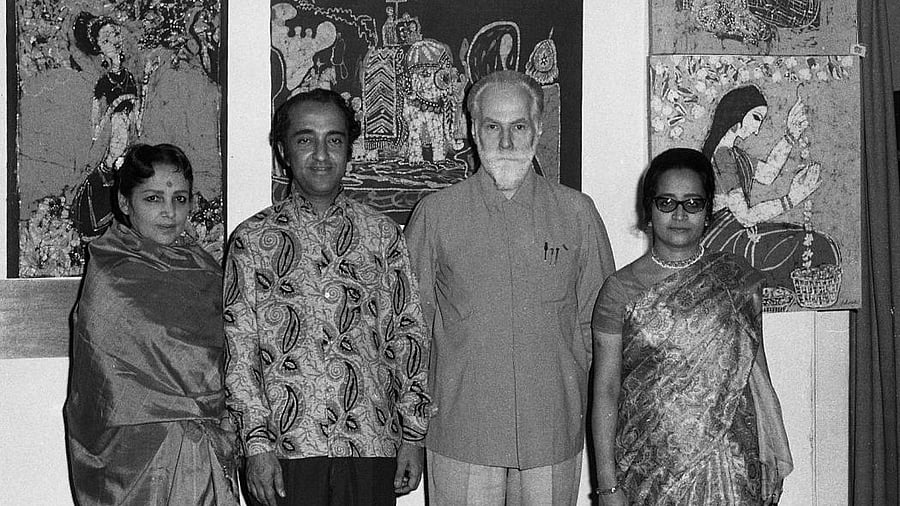

At the height of the Russo-Japanese War in 1904, the Russian naval command was preparing for action, with Russian warships entering the North Sea. In the capital, St Petersburg, Helena and Nichols Roerich welcomed their second son Svetoslav Roerich. Helena was an author from an aristocratic family and Nicholas was a famous and influential painter. Both were public figures who moved out from Russia to Finland and thereafter to London, New York before finally settling in Himachal Pradesh, India.
Svetoslav and his elder brother, George’s upbringing helped shape their lives. George went on to carve a niche as a renowned Tibetologist and linguist. Svetoslav, under the tutelage of his father, took up paintbrush and palette, and excelled.
Academically trained as an architect in London, he continued his studies in universities in the US, where he became an avid painter before moving back to Himachal in 1931.
Svetoslav was mesmerised by the beautiful landscape that his parents made their home in Himachal. He found his inspiration here in the foothills of the Himalayas. The magnificent mountains, flowers on the banks of the streams, birds and blue sky — he captured them all on his canvas. His style was also influenced by his father, his first teacher.
In 1945, he married Devika Rani, the grand-niece of Nobel Laureate Rabindranath Tagore. She was famously known as ‘the first lady of Indian cinema’, having had a successful 10-year career as an actress on the silver screen. The couple moved to Bengaluru in 1947 and went on to acquire a 450-acre land in the periphery of the city called Tataguni Estate in 1948. Interestingly, Rumale Channabasavaiah, the painter laureate of Karnataka, played a role in Svetoslav settling in ‘Namma Bengaluru’.
Apart from bringing life to the rich landscape paintings, Svetoslav painted several portraits. His wife Devika Rani was his muse, often holding flowers and standing before bright colourful backgrounds. It is said that he created his own paints, and his canvas reflected vibrant, fresh colours. His landscape works are not realistic but have a charm of their own. Critics have labelled his work ‘romantic and mythic’, with a great deal of influence from his father.
The landscape work shows his love for the mountains of Kullu valley. The trees and slow-moving rivers are depicted in striking colours. His portraits too, bring a sense of the mythical element to the faces of the people.
The Roerich family
The Roerichs were an influential family with links to top leaders in not only India, but also across Europe and the US. Svetoslav’s portraits of Nehru, Indira Gandhi and S Radhakrishna adorn the walls of the Central Hall of Parliament.
Svetoslav Roerich stood out in his appearance with a long white beard, thick moustache and broad shoulders. His paintings went on to be exhibited across the country, fetching him the Padma Bhushan, Order of Friendship of Peoples by the Soviet Union, and an Honorary Doctorate from the Veliko Tarnovo University, Bulgaria for his immense contribution through art.
During his time in the city, he played an important role in building the Chitrakala Parishath in its early days. The Russian painter was a part of the artist community, yet stayed away from the local artists. He contributed a lot of his work along with his father’s paintings to the Parishath.
The artist breathed his last in the city on January 30, 1993. His body was wrapped in the tri-colour and several dignitaries paid their last respects to him. In a little over a year, Devika Rani too, passed away.
The Supreme Court, in 2011, awarded Tataguni Estate to the Karnataka government after years of legal battles over the sprawling estate. Sadly, it remains largely neglected. The estate houses several paintings belonging to Svetoslav Roerich and Devika Rani.
At present, Roerich’s work is housed in the Karnataka Chitrakala Parishath, International Roerich Memorial Trust in Kullu and the International Centre of the Roerichs in Russia.